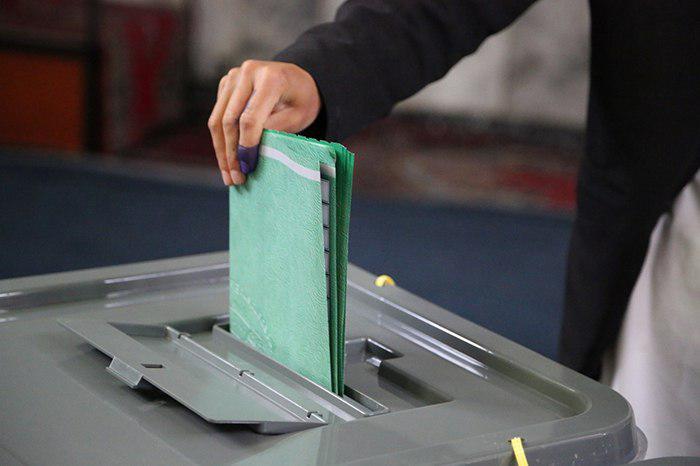With the Independent Election Commission (IEC) preparing to announce preliminary results of the 2019 presidential elections, candidates are challenging the announcement.
Chief Executive Abdullah Abdullah, who is running for the presidential election, warns his team will not accept the preliminary results if the IEC announces it before addressing legal demands raised by the presidential tickets. Mr. Abdullah said his team will not remain silent against IEC’s decision.
The long delayed 2019 presidential elections was held in September of this year under high security fear. An estimated two million Afghan voters turned out to cast their votes on Election Day, September 28, despite security threats posed by the Taliban militants who had warned to target polling centers.
Mohammad Reza Fayyaz, a deputy spokesperson for the Independent Electoral Complaint Commission (IECC), told Kabul Now that any decision by the IEC must be made in light of law. “Implementing the law and [IEC] procedures are the only way to ensure transparency,” he asserted.
Mr. Fayyaz assured that the IECC is monitoring the whole election process and performance of the IEC, adding that IECC representatives have also monitored the recount process completed in all 27 provinces.
The IECC is waiting for the IEC to announce the preliminary results for the 2019 Afghan presidential elections, he said.
Why there are disputes over election results?
Over 300,000 votes are disputed between the protesting presidential candidates, mainly partnership and stability ticket led by Abdullah and the Afghan election commission. The protesting candidates say those votes which are not verified biometrically should be cancelled while the IEC tempts to consider them as valid votes.
Fazl Ahmad Manavi, a senior member of Abdullah’s campaign team, talking at a press conference on Monday, December 09, said they would force the IEC, under any circumstances, to take out the ‘last fake vote’ from the system – the National Tally Center.
“Even a single fake vote is not acceptable. We will not be responsible for what is going to happen and we are not tasked to ignore the rights we are given in the law,” he warned.
Controversial votes
18 candidates are running for the 2019 presidential elections of Afghanistan which was held on September 28, 2019. Five nominees withdrew and remaining 13 candidates fought to become the next president of the country.
With the exception of the state builder ticket led by the incumbent president Ashraf Ghani and Faramarz Tamana, a candidate who joined Ghani’s team after the elections, all other 11 presidential tickets are protesting against recount and audit process.
Three major candidates—Abdullah, Gulbuddin Hekmatyar, and Rahmatullah Nabil— are pressing the IEC to invalidate nearly 300,000 votes. Abdullah’s ticket claims the 137,630 votes are invalid and 100,000 other votes have been cast beyond the voting time limit set on the Election Day—from 07:00 AM to 05:00 PM.
National coalition government
To break the current election standoff, some presidential candidates suggest that a national coalition government—comprises of 11 presidential nominees— should be formed to end the election crisis.
Rahmatullah Nabil, speaking at a press conference on Thursday, December 05, proposed that a ‘reconciliation government’ should be formed. He called for cancellation of the election results for a breakthrough to the current situation they described as ‘stalemate’ against the election process.
“The election results must be cancelled, the Taliban should held ceasefire, and the peace process must become intra-Afghan talks,” Nabil asserted.
The next day, Friday, December 06, Gulbuddin Hekmatyar, who is leading peace and Islamic justice presidential ticket, called for creating an interim government. He stressed that the interim government must manage the peace process and elections.
Overshadowed by peace talks
The Afghan election process has been hugely crippled by peace process and US talks with the Taliban since the very beginning. The election campaigns were not getting momentum until US President Donald Trump called off months-long direct talks between the United States and the Taliban in Doha, capital of Qatar, earlier in September. Trump also cancelled his secret meetings with the President Ghani and Taliban representatives scheduled to take place at Camp David, all after a Taliban car bomb attack left 13 people dead including an American service member in Kabul.
A number of former Taliban officials, speaking at a conference held in the western Herat city, on Tuesday, December 10, stressed on prioritizing peace process over Afghan 2019 presidential elections.
Talking to Kabul Now, Sayed Akbar Agha, a former Taliban official, indirectly urged for cancellation of the election results. He asserted that peace talks will be sacrificed by the presidential elections if the election results is announced and the Taliban will remain out of next government.
Afghan Peace and election dilemma come while last month US President Donald Trump paid a surprise visit to Afghanistan. During his first ever visit to the country, Mr. Trump announced that his administration had resumed peace talks with the Taliban.
After Trump’s announcement, Zalmay Khalilzad, the US Special Representative for Afghanistan Reconciliation, rejoined table of talks with the Taliban on Saturday, December 07, following meetings with prominent Afghan politicians in Kabul.




